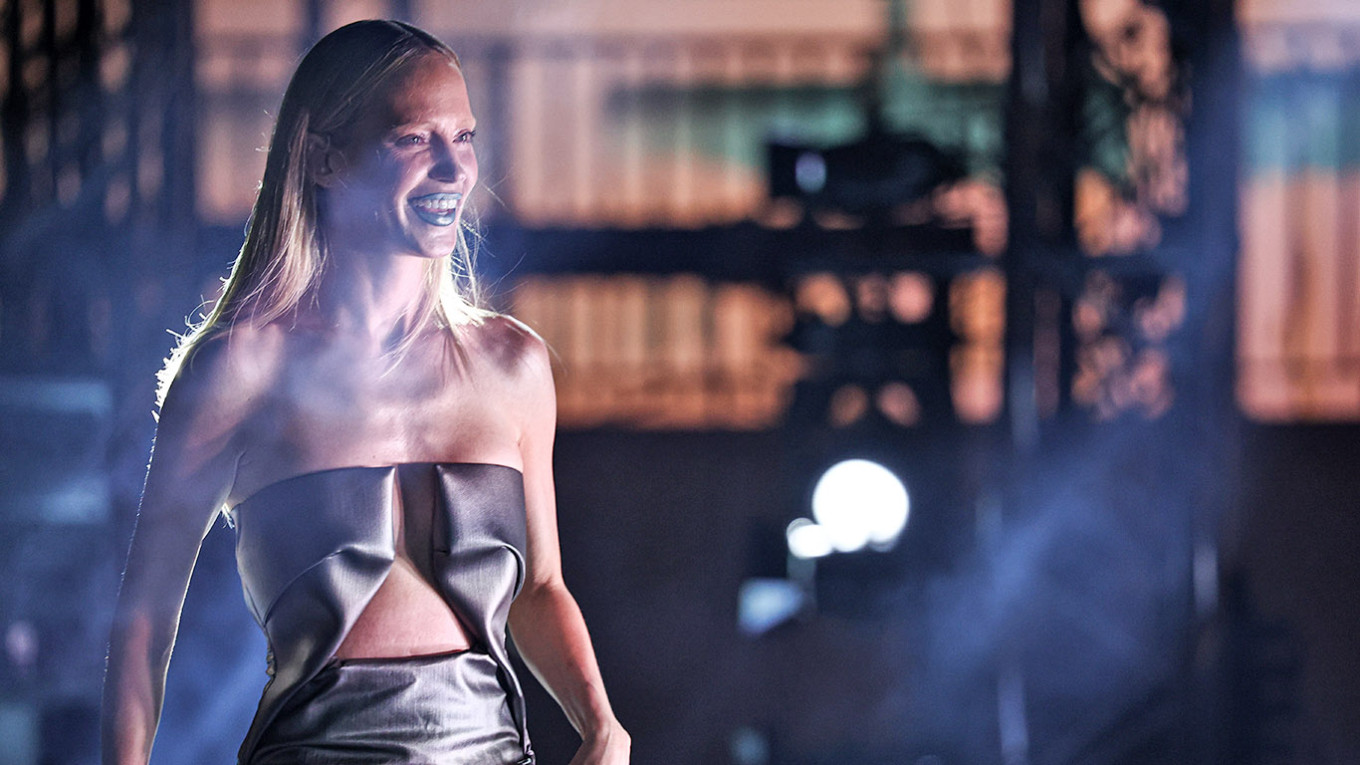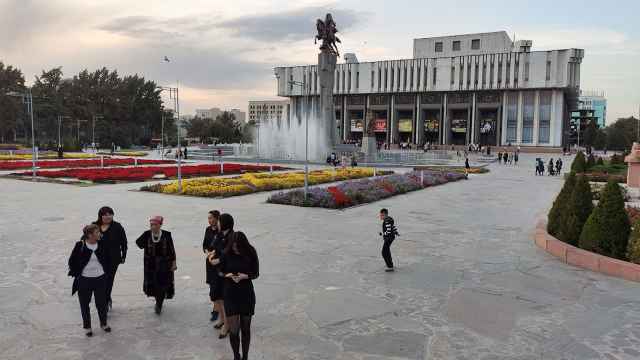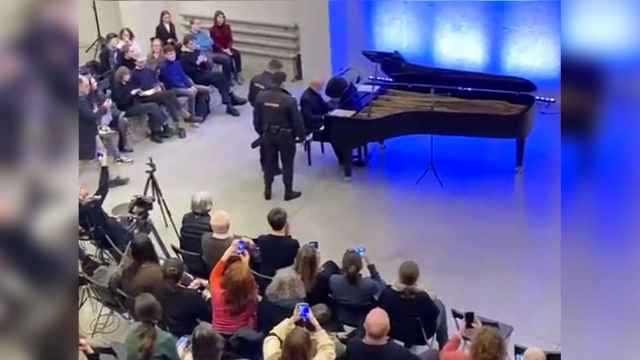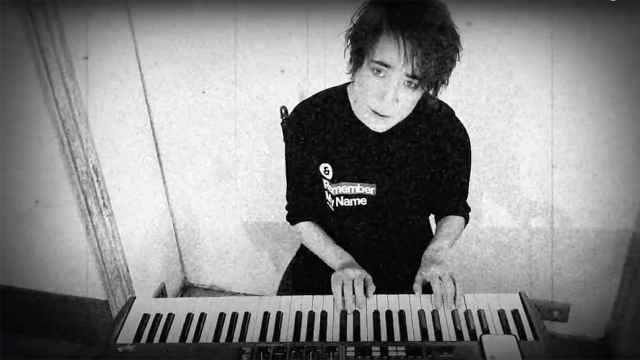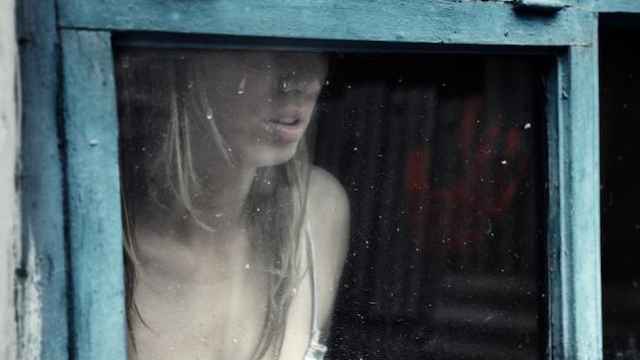Russian politicians fighting to defend so-called “traditional” values are turning their attention to the country’s vibrant music scene, lambasting pop stars for performances and outfits deemed to be too revealing or sexual.
Pop singer Natalya Chistyakova-Ionova, who is best known by her stage name Glukoza, became embroiled in scandal after pro-Kremlin censorship activist Yekaterina Mizulina took note of her performance in the Siberian city of Krasnoyarsk last week.
“Glukoza came on stage in an indecent state and was touching her intimate parts [during the performance]…in front of thousands of children,” Mizulina wrote on Telegram.
“Residents of Krasnoyarsk are outraged…they are asking to hold the singer accountable,” she added. “I advise authorities in all other cities where she performs in the future to first test the singer for drugs.”
Glukoza later issued a public statement apologizing for her behavior during the performance, blaming it on a mixture of “sleeping pills and antidepressants” that she was recently prescribed.
But on Thursday, state-run media announced that the singer’s accounts across several Russian banks were blocked due to alleged tax debt — a move observers linked to her fall from grace with the authorities.
And some journalists took note of Glukoza’s name disappearing from a promo poster of a large festival due to take place in Moscow in September — her only scheduled concert in the coming months.
“This story would actually seem quite familiar to those who lived in the Soviet era,” prominent Russian journalist and music critic Artemy Troitsky told The Moscow Times.
“Censorship in Putin's Russia is, in some respects, much harsher than it was during the latter years of the Soviet Union,” added Troitsky, who is based in Estonia.
In keeping up with Soviet censorship traditions, the Culture Ministry said it would support the introduction of a dress code for Russian performers.
The proposal was first voiced by conservative State Duma deputy Irina Filatova in response to a scandal surrounding pop star Olga Buzova.
Last month, Russian law enforcement authorities opened a probe into a Children’s Day performance by Buzova, whose “revealing” outfit sparked outrage among conservative figures.
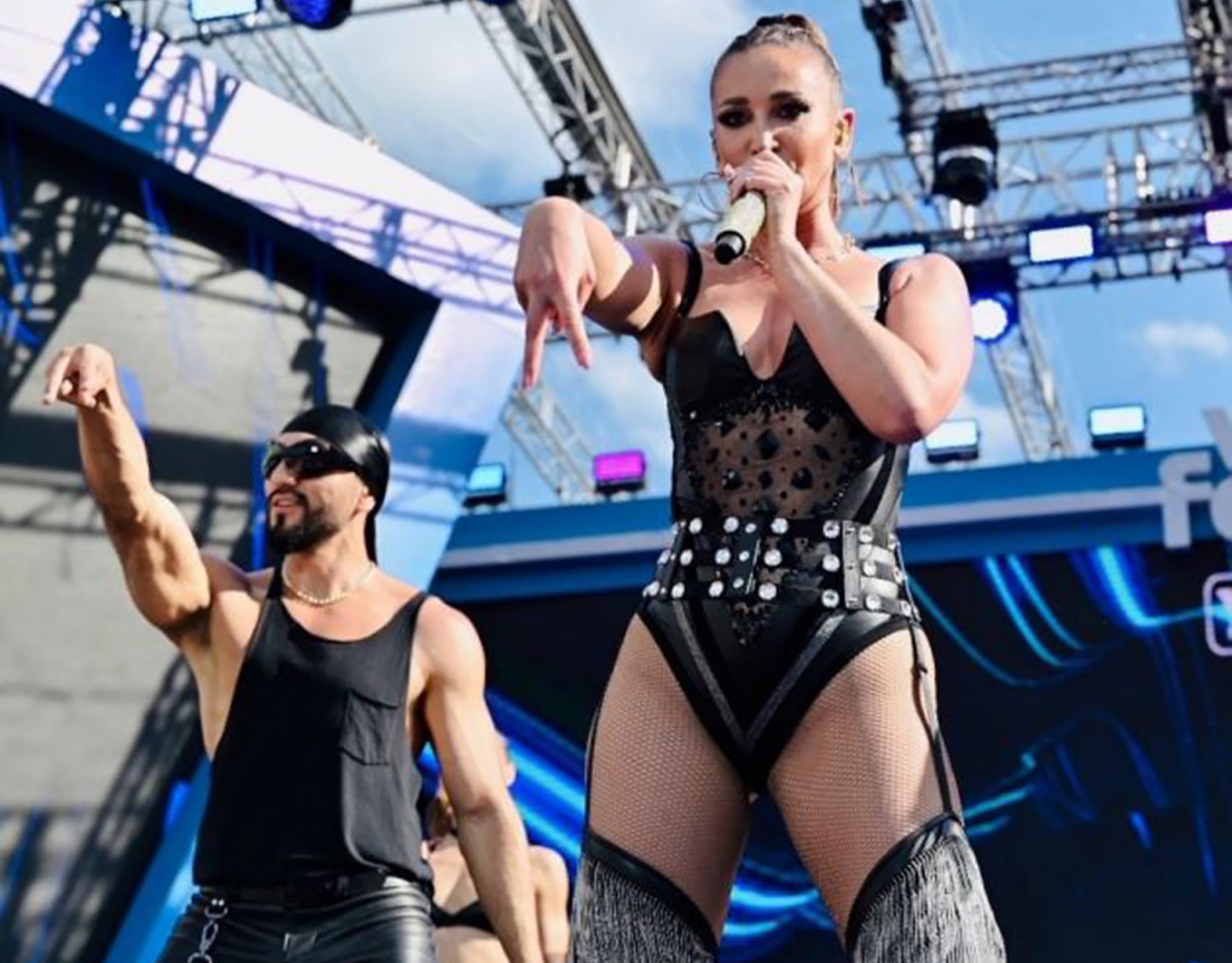
A regional lawmaker from the majority Muslim republic of Bashkortostan, where Buzova’s performance took place, said residents bombarded him with complaints over Buzova appearing on stage in a leather leotard.
“Why provoke people like this? Especially in a region where there are many believers? I don't understand this,” Mizulina then echoed the enrage.
Buzova and her team later apologized for the “offensive” outfit.
“I always bring love and kindness. I live and work for the good of the Motherland…Everyone knows this,” she wrote on her social media. “Do not look for evil where it does not exist.”
Many Russian pop stars later voiced their support for Buzova and spoke out against a possible dress code.
Pop singer Lusia Chebotina said she would stop performing altogether if a dress code was introduced, saying that more conservative costumes would restrict her ability to sing and dance on stage.
“It can be so physically difficult that you can lose consciousness. I was carried off the stage several times because of how hot it was," Russian media quoted the singer as saying.
Chebotina’s sentiment was backed by veteran pop singer Lolita Milyavskaya, who said that seemingly revealing bodysuits are not simply a fashion choice, but are part of an artist’s “professional equipment.”
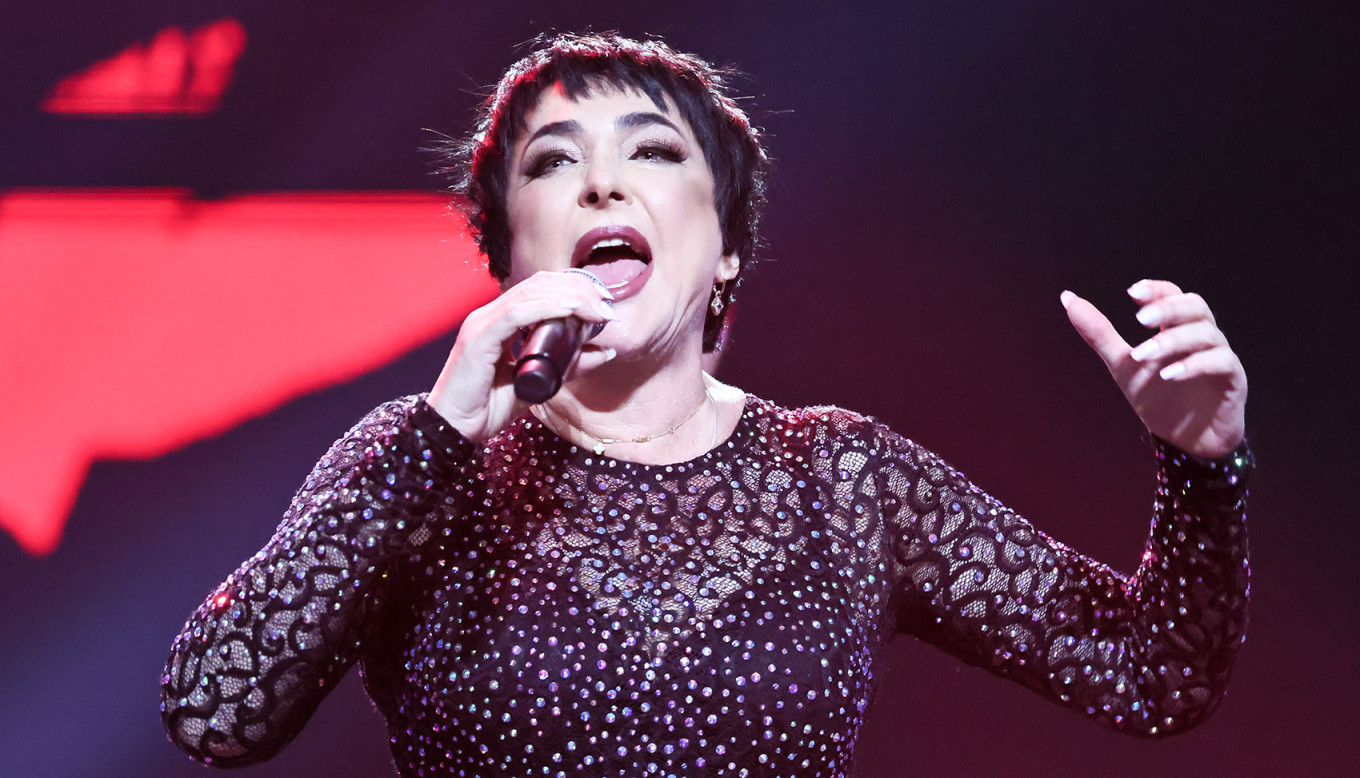
Though Russia is yet to introduce formal legal punishments for artists whose appearance clashes with its agenda of “traditional values,” journalist Troitsky believes that the recent incidents could pave the way for greater self-censorship.
“In the Soviet Union, all artists knew how they could and could not dress if they wanted to be shown on television or make a career at all. The exact same thing is happening now,” he said.
“That's why androgynous costumes, which were once very popular, have disappeared [in Russian showbiz],” Troitsky explained.
“Many high-ranking Russian pop stars, such as Nikolai Baskov or Philipp Kirkorov, who are homosexual, have been demonstrating this gay aesthetic [until recently]. But now, of course, it is a thing of the past.”
A Message from The Moscow Times:
Dear readers,
We are facing unprecedented challenges. Russia's Prosecutor General's Office has designated The Moscow Times as an "undesirable" organization, criminalizing our work and putting our staff at risk of prosecution. This follows our earlier unjust labeling as a "foreign agent."
These actions are direct attempts to silence independent journalism in Russia. The authorities claim our work "discredits the decisions of the Russian leadership." We see things differently: we strive to provide accurate, unbiased reporting on Russia.
We, the journalists of The Moscow Times, refuse to be silenced. But to continue our work, we need your help.
Your support, no matter how small, makes a world of difference. If you can, please support us monthly starting from just $2. It's quick to set up, and every contribution makes a significant impact.
By supporting The Moscow Times, you're defending open, independent journalism in the face of repression. Thank you for standing with us.
Remind me later.



